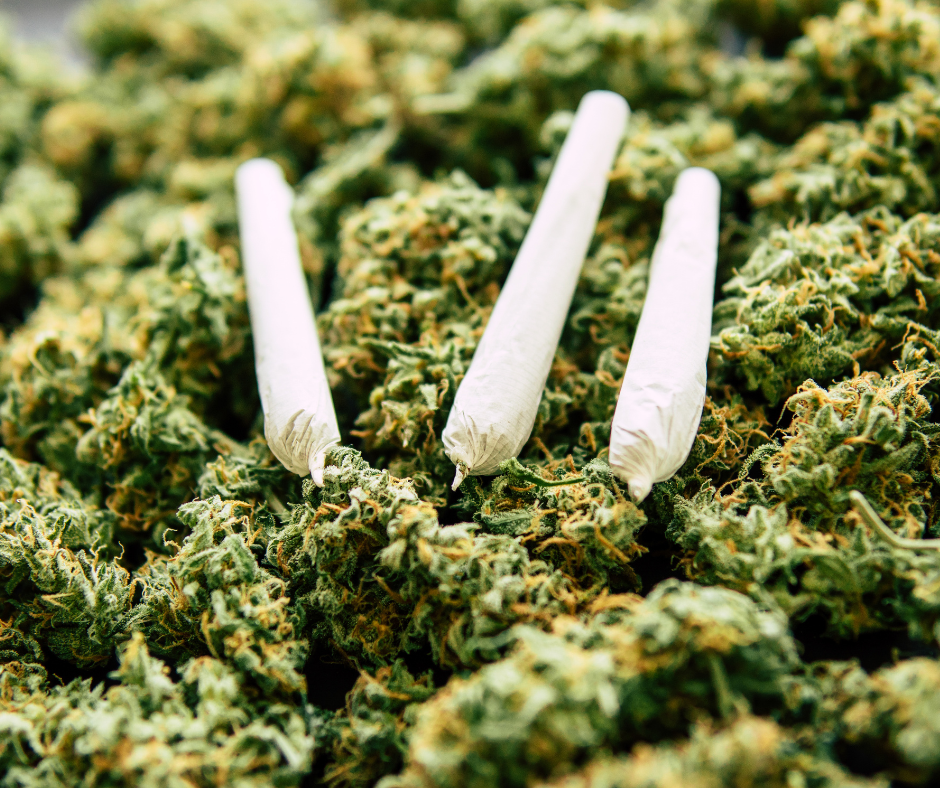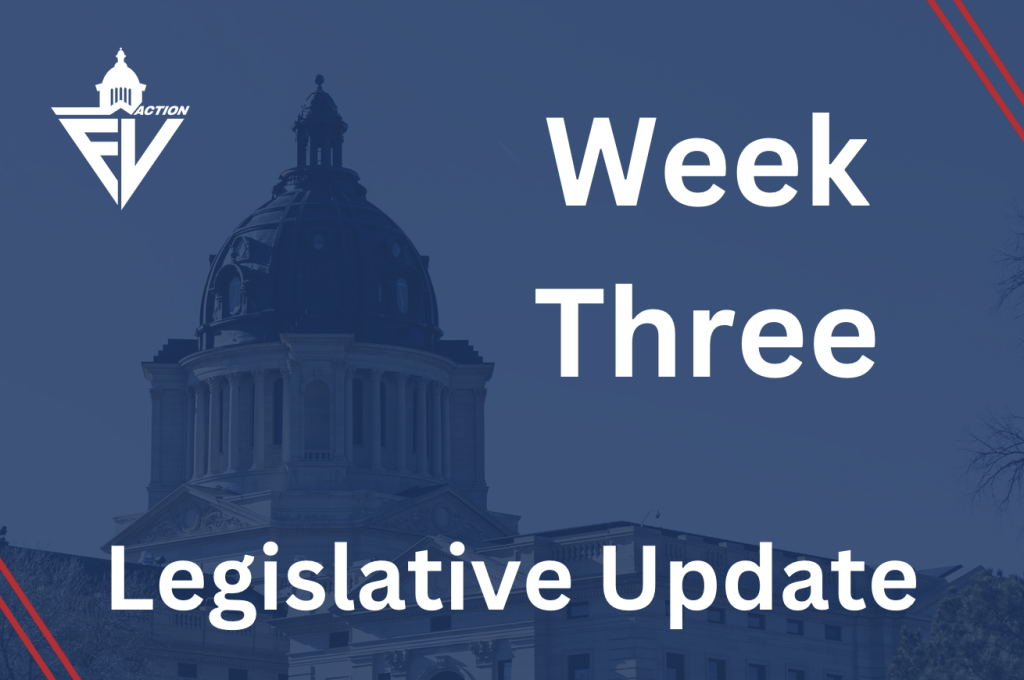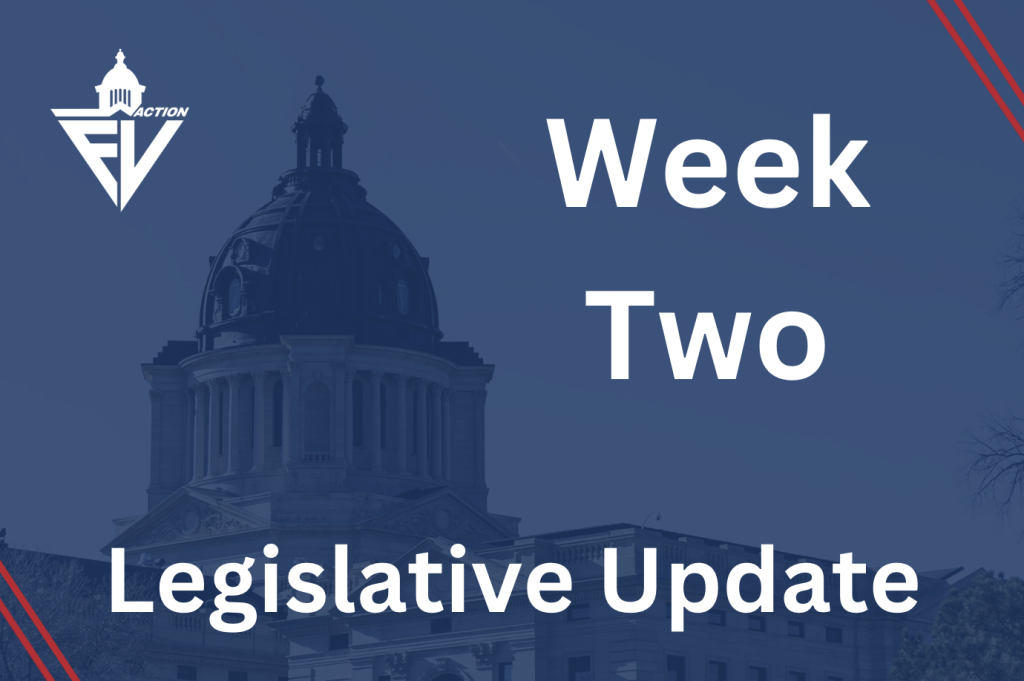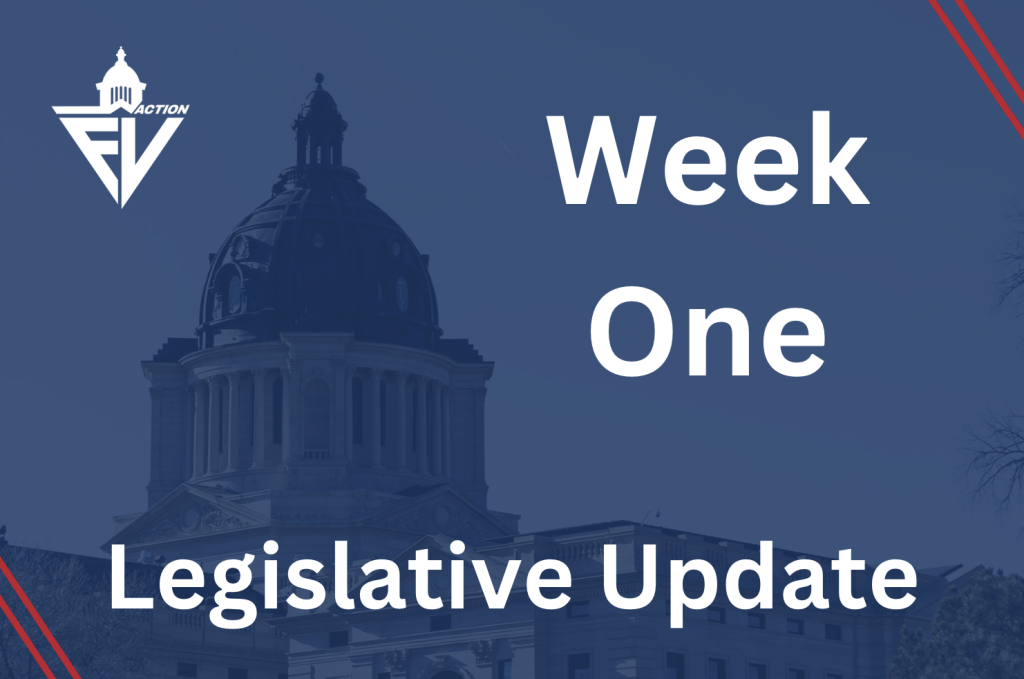In 2022, South Dakota voters rejected a measure that would have legalized recreational marijuana in our state. In November, a similar measure will be back on the ballot for the third time. It’s up to voters to decide if South Dakota will become the 24th state to legalize marijuana for recreational use.
In 2022, a coalition of leaders joined forces to oppose Initiated Measure 27 (IM 27), including advocates from the faith community, law enforcement, addiction treatment centers, non-profit groups, local elected officials, and Family Heritage Alliance Action (FHAA), now Family Voice Action. IM 27, which would have legalized recreational marijuana, was soundly defeated in the election. We warned, however, that “the marijuana industry will attempt to make tonight’s defeat of IM 27 a simple speed-bump on their path to make a profit.” Unfortunately, we were correct in that prediction.
Matthew Schweich, executive director of South Dakotans for Better Marijuana Laws (SDBML), the same man who was behind the 2020 and 2022 initiatives, also introduced IM 29, the measure voters will see this November on their ballots. IM 29 would allow anyone 21 and older to “possess, grow, ingest, and distribute marijuana or marijuana paraphernalia.” The measure also notes that possession would be allowed “up to 2 ounces in a form other than marijuana concentrate or other marijuana products.” The good news is that Schweich preemptively announced that this will be his last attempt to pass such a measure.
“If [voters] say no, we are done, at least I am,” Schweich said. This may be the last marijuana measure we will face for the foreseeable future if voters rise up and defeat IM 29 this November. Based on recent polling, it appears voters will do just that.
A recent poll of 500 registered voters revealed that most South Dakota voters still oppose legalizing recreational marijuana. The study found that “52% of respondents are against Initiated Measure 29, compared to 42% who support it and 7% who are undecided.” Compared to 2022, the rate of opposition to the amendment has remained consistent, when the measure failed by a rate of 52% to 47%. Most notably, however, the level of support for the amendment has significantly dropped. If this poll is an accurate representation of South Dakota voters on a larger scale, it signals another defeat of this dangerous idea if – and only if – everyone opposed to the legislation casts their vote on November 5th.
We know what happens when states legalize marijuana. In one Oregon community, just a year after legalizing marijuana, drug overdoses increased by 700% and deaths increased by 120%. This devastating result of marijuana legalization is not something we want to see happen in South Dakota.
The problem with legalizing marijuana is not just how it would negatively impact adults and our communities overall, but how it would surely impact children. One study found that marijuana use among minors in states where it is legal (21+) is “alarmingly high and rising.” Take a look at the statistics below:
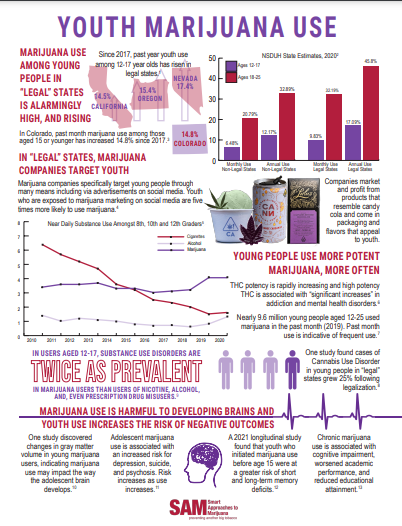
Rhonda Milstead, a former Republican state legislator and executive director of the campaign committee Protecting South Dakota Kids, said: “When it comes to our children, South Dakotans are fiercely protective. We say no to any group selling addiction for profit.” (emphasis added)
Proponents of IM 29 may tout marijuana as a safe and non-addictive drug, but that couldn’t be further from the truth. It can and does lead to psychosis, schizophrenia, and severe mental illness. It contributes to depression, suicidal thoughts, high anxiety, memory loss, and poor executive function. It is a myth that cannabis is a non-addictive substance – studies show that between 10% and 30% of marijuana users will develop Cannabis Use Disorder (CUD), which is defined as “an addiction so serious users cannot quit using the drug even though it is causing them problems in their lives.”
South Dakota must stand against this dangerous drug that has harmed so many communities in other states. Though the numbers appear in our favor, it is still absolutely essential that every concerned citizen casts their vote against this measure in November if we want to protect South Dakota from this harmful gateway drug.

